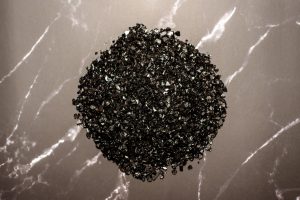Malaysia plans to ban exports of rare earth raw materials in a bid to boost domestic processing of the valuable elements, Prime Minister Anwar Ibrahim said yesterday, echoing a recent string of export restrictions in neighboring Indonesia.
Unveiling his government’s economic plan for 2023-2025, Anwar said that his government would support the development of the rare earths industry in Malaysia and that a ban would “guarantee a maximum return to the country.”
Under the plan, Anwar said, the government will conduct a “detailed mapping of rare earth element sources” and develop a comprehensive business plan to determine how these can best be exploited.
“Hence, the government will come out with a policy which bans the export of rare earth raw materials to prevent any exploitation, loss of resources and in turn guarantee a maximum return to the country,” he said, according to BenarNews. Anwar did not say when the proposed ban would come into effect.
Malaysia is not a massive source of rare earth reserves, which are both economically and strategically salient due to their use in the manufacture of a host of technologies including semiconductor chips, lasers, and electric vehicles. Reuters cited data from the United States Geological Survey showing that the country is home to an estimated 30,000 metric tons of rare earths compared to 44 million tons in China, by far the world’s leading producer.
Even so, the Malaysian leader told Parliament that rare earth minerals could contribute as much as 9.5 billion ringgit ($2 billion) to the country’s gross domestic product in 2025 and create nearly 7,000 jobs.
In this respect, the proposed Malaysian policy bears a close similarity to policies adopted in recent years in neighboring Indonesia, designed to stimulate the development of domestic processing industries rather than allowing its raw materials to generate wealth abroad.
Most notably, these include a ban on the export of unprocessed nickel ore, the purpose of which is to encourage foreign companies to invest in nickel smelters and other processing facilities in Indonesia, in order to create jobs and increase how much the country earns from the export of vital raw minerals. The nickel ban in particular is part of President Joko “Jokowi” Widodo’s ambition of turning Indonesia into a hub for the manufacture of electric vehicle batteries and, in time, the vehicles themselves. Jakarta has also banned exports of bauxite starting in June of this year, and Jokowi has also flagged possible bans on the export of unprocessed tin and copper.
In this, Malaysia’s government is following the global trend of increasing economic nationalism, in which governments intervene in markets for key commodities in the pursuit of national strategic goals. Indeed, China itself has announced restrictions on exports of some rare earth metals used in the semiconductor industry, in apparent retaliation for U.S. curbs on sales of advanced technologies to China.
That said, given that only about 8 percent of Malaysia’s rare earth ores were exported to China between January and July this year, according to China customs data, the proposed Malaysian ban appears to be less motivated by strategic and security concerns than by the bottom line.

































